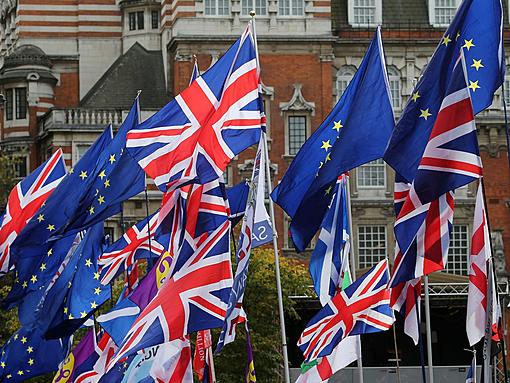As the world is caught by the coronavirus outbreak, it's easy to keep up with what happened to Brexit.The big changes will come from January 1, but the UK and the EU are running out of time to accept. New rules
Here are 9 key moments from this year.
1.UK depart (31 January)
At 23:00 GMT on January 31, Britain officially left the European Union - almost four years after the public vote took place.Brexit supporters celebrated in London's Parliament Square as Prime Minister Boris Johnson vowed to bring the country together and "Take us forward"But the UK did not immediately sever all ties with the European Union. The UK enters a transition phase that means continued compliance with EU rules until 31 December 2020.The change is to give both sides room to breathe while the UK-EU talks will take place. The results of these talks will set rules for new UK-EU relations, including trade, which will begin on January 1, 2021.
What is the transition period?
2.UK-EU trade talks begin (2 March)
New talks are underway in Brussels on March 2.David Frost, the lead negotiator in Britain, accompanied by 100 advisors and government officials at the opposite end of the table, is the EU's chief Brexit negotiator Michel Barnier.The biggest problem is trade deals, everything from cross border trucks to financial service rules. But there is still a lot more to talk about - the safety and safety cooperation of drugs is an example.Both sides said they wanted to avoid tariffs, a cross-border product tax. But the UK wants to set all its own rules and the EU says it doesn't want the rule change, meaning Britain has an unfair advantage.
3. The EU said negotiations are in force. 'Go back rather than go forward' (21 August)
With the coronavirus going on, little progress has been made in trade talks.
Two main anchor points are formed:
Fishing: Both sides disagreed on the number of EU ships that should reach UK waters.State aid: Under current EU rules, countries are not allowed to pay to help a failed company, the UK argues it should be allowed. (It is not yet in the EU) to spend state aid on everything it needs. The EU, however, said Britain should follow the current rules to not give its businesses an unfair advantage over EU competitors.Discontent has escalated on both sides, and on August 21, Barnier said at a press conference that the prospect of the EU-UK post-Brexit trade deal "seemed improbable" as Lord Frost. Yost said the European Union has done many things.
4. Britain says it's not afraid to walk away (September 6)
In additional signs that talks are in trouble, Lord Frost told the Mail on Sunday that Britain was not afraid to walk away and called on the European Union. "Take our position very seriously"If negotiations fail, the charge, known as tariffs, will be applied to most of the goods that UK businesses ship to the EU. That could make UK products more expensive in the EU. Tariffs will be introduced on EU goods entering the UK.Full border inspections are also needed, and businesses have expressed fears that long queues of trucks at ports will lead to massive trade disruptions across the country.
Both parties wanted to เกมส์ยิงปลา continue the trade without paying taxes and not bringing in too many extra checks. But there must be a trade agreement. The UK also needs services for everything from accounting to education which are included in any deal.




 LinkBack URL
LinkBack URL About LinkBacks
About LinkBacks

 Reply With Quote
Reply With Quote








